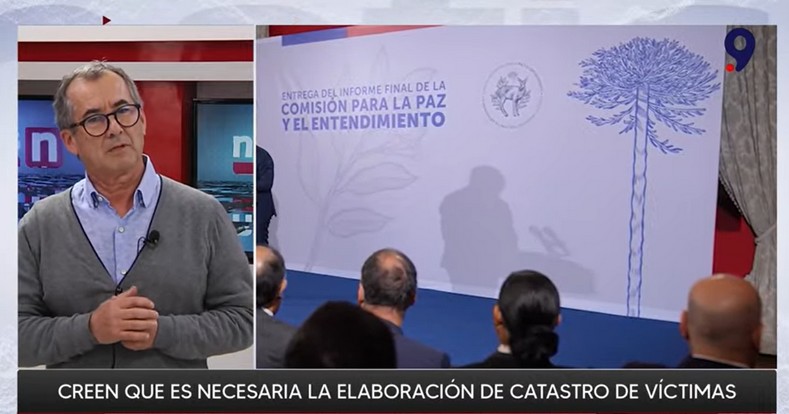In a frank and forceful interview, René Muñoz, manager of the Association of Forestry Contractors (Acoforag), lashed out at the lack of concrete actions by the State to repair the damage suffered by thousands of workers and business owners in the forestry sector affected by decades of violence in the southern macrozone. From arson attacks to the loss of jobs, Muñoz warns of a deep crisis that not only threatens the sector but also the social and economic stability of an entire region.
"We're talking about at least 28 years of violence. And what hurts the most is that the victims continue to be ignored," emphasized Muñoz in an interview with Noticias Mediodía on Canal ) Biobío TV.
Lack of Registry and Exclusion of the Concept of Terrorism
One of the most critical points raised by Muñoz is the absence of an official registry of victims. According to his estimate, around 400 forestry contractors have been directly affected by the violence in the area, which, including workers and families, translates to approximately 120,000 people harmed. However, no state agency has formally systematized this information.
He also criticized the report by the Commission for Peace and Understanding for deliberately omitting the term "terrorism," referring only to "violence," which he considers a euphemism that avoids confronting the true magnitude of the problem. "There is an exclusion of the concept of terrorism as if it were an uncomfortable word. But it's what we've experienced since 1997 in Lumaco, with the first attack," he pointed out.
Reparation: A Vague Promise Without Backing
Although the Commission's report mentions the need for a reparation law for victims, Muñoz denounces that it appears in a "superficial" manner and without clear financial commitment, unlike land restitution, where a budget of $4 billion is established.
"When discussing reparation for victims, they mention a budgetary line, which may or may not be executed depending on the will of Parliament. In contrast, land restitution has a defined amount. That's not fair," he explained.
The leader warned that without real backing, reparation will continue to be postponed, worsening the feeling of abandonment among thousands of people.
Migration, Abandonment of the Sector, and Million-Dollar Losses
The prolonged conflict has had devastating effects on the sector. According to Muñoz, between 60 and 70 forestry business owners have left the industry. Many workers have migrated to the north of the country in search of better working conditions due to the persistent insecurity in the south.
Although there are state support mechanisms for victims of attacks, these are insufficient. The aid, ranging from 30 to 50 million pesos, falls far short of the actual costs of operations, which can reach $2.5 million.
"A small operation costs 200 million. The State's aid isn't even enough to get back on your feet. And on top of that, you have to apply and meet complex requirements," he commented.
Beyond security, Muñoz was categorical in denouncing the State's structural abandonment of the forestry sector. Since 2012, Chile has lacked a reforestation promotion law, leading to stagnant investments and growing distrust among forest owners.
"There is no State policy that sees forests as a strategic sector. It hasn't been understood that it's the only truly green sector: it captures CO₂ and produces oxygen. Pulp is in our clothes, in what we use every day," he said critically.
Adding to this is the growing insecurity: between 50% and 60% of forest fires are intentional, discouraging planting and jeopardizing long-term harvests.
"Who's going to plant a forest if they're not sure they'll be able to harvest it in 20 years?" he asked.
Meetings Without Results and Lack of Participation
Despite the announcement of various working groups to strengthen the Biobío industry, Muñoz claims that Acoforag has not been invited to participate, which he considers a grave mistake given the association's experience and on-the-ground knowledge. "We don't see results in those meetings. There's a lack of intelligence, strategy, and resources. Without that, the sector's crisis won't be reversed," he stated.
Finally, René Muñoz called for justice and unity, stressing that the country cannot continue to be divided between Mapuche and non-Mapuche. "We are all Chileans," he expressed, urging the State to take responsibility for all victims of violence, without exceptions or biases.
"The victims deserve a response. They can't continue to be made invisible," he concluded.
The full interview from minute 15 on Canal 9 Biobío TV's YouTube channel.







Comments (0)
No comments yet. Be the first to comment!
Leave a comment